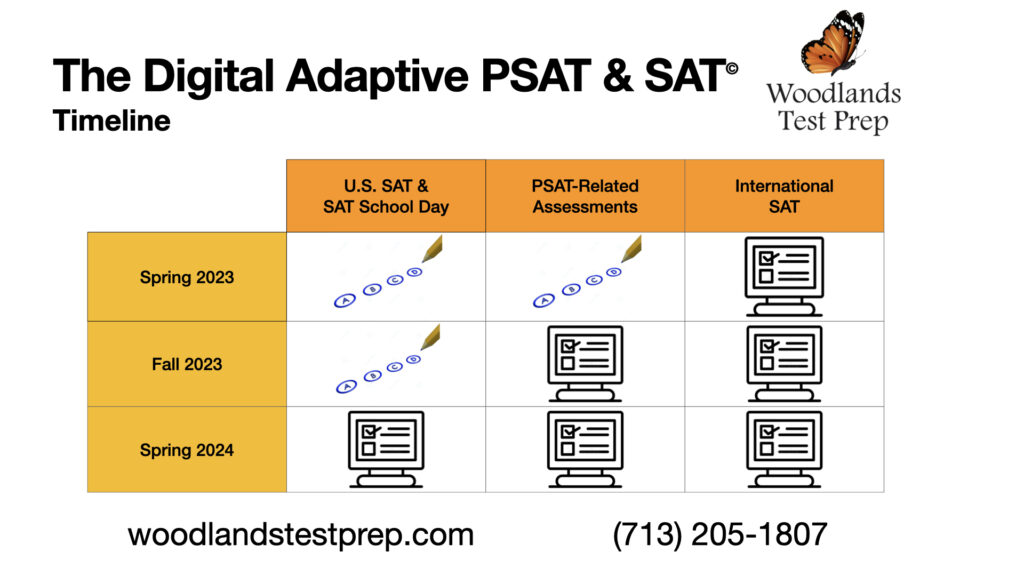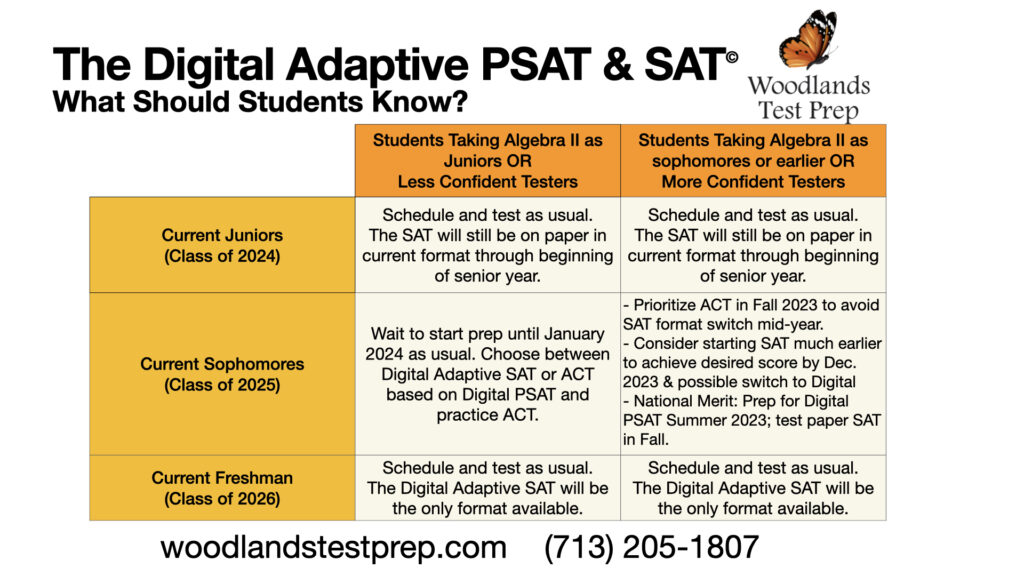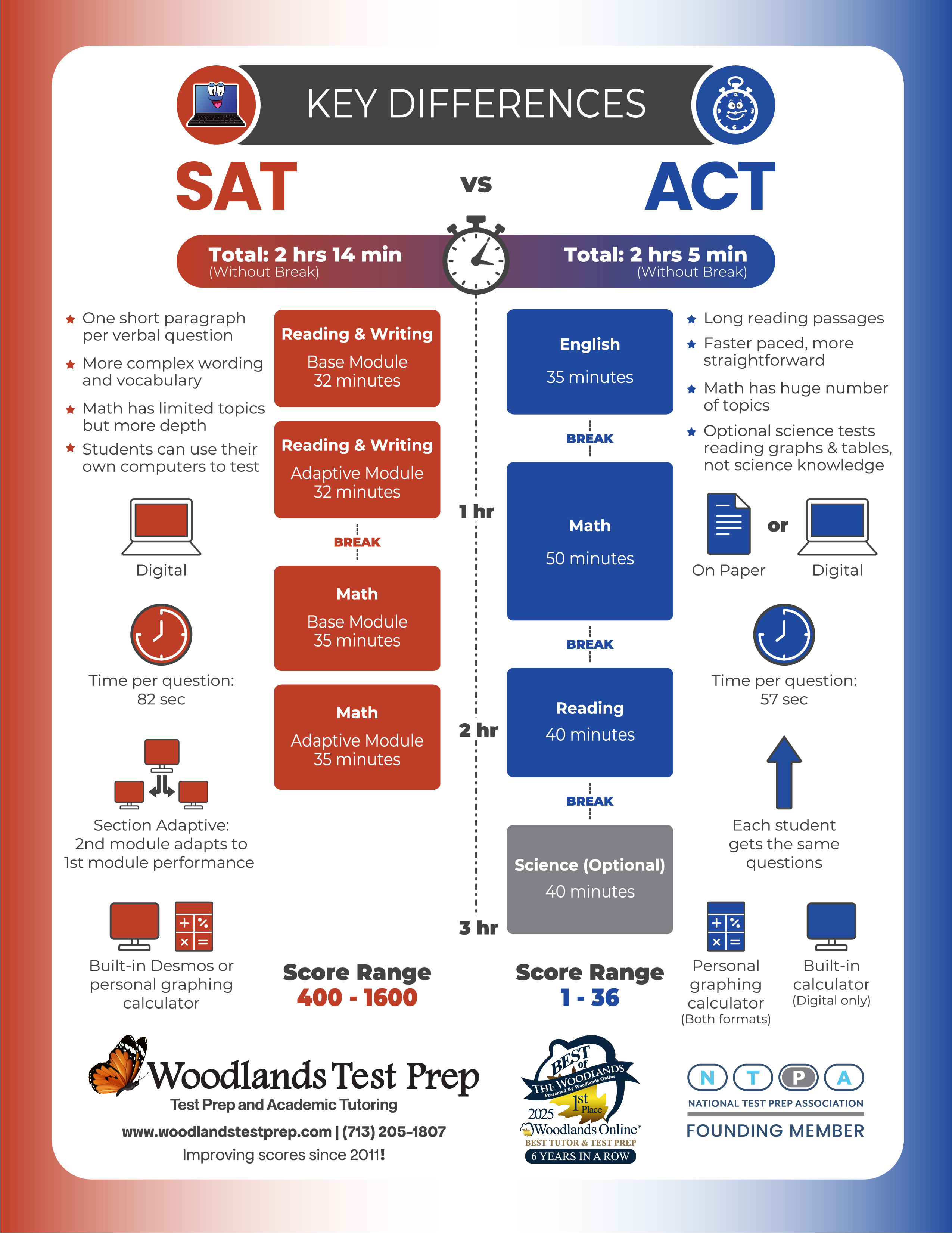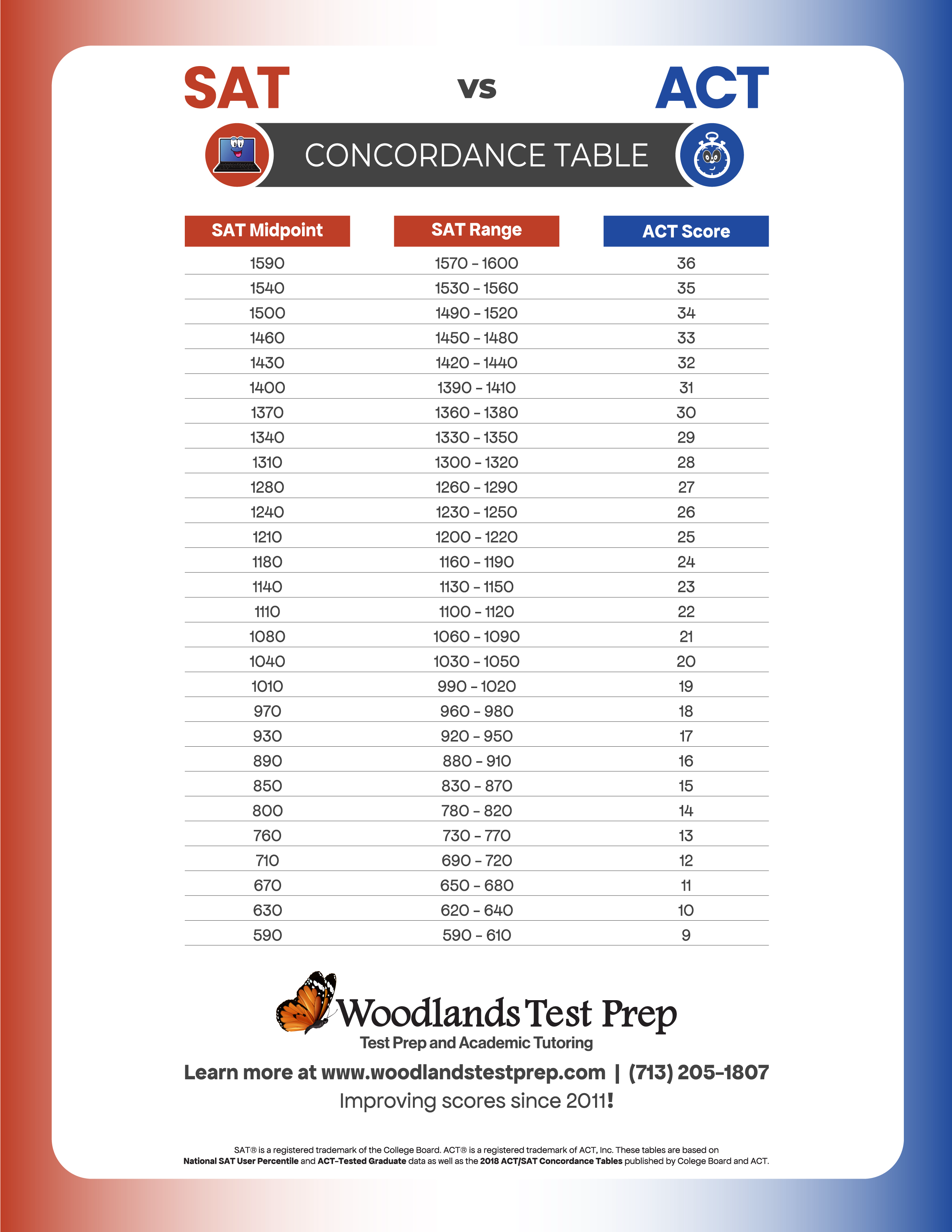We’ve been busy making sure we have all the up-to-date information about the big changes coming to the ACT. We have another blog post if you want the highlights or recommendations for each grade of high schoolers. If you, however – intrepid soul – want all the nitty gritty, we can hook you up! Read on about the “Enhanced ACT.”
Format
- Fewer questions, shorter passages, more time per question, less time per section will characterize the new English/Math/Reading (Core EMR) sections.
| Current Section Time | Enhanced ACT Section Time | Current Section Questions | Enhanced ACT Questions | Current Time per Question | Enhanced ACT Time per Question | Increase in Time per Question | |
| English | 45 min | 35 min | 75 Q | 50 Q (10 Exp.) | 36 sec | 42 sec | + 17% |
| Math | 60 min | 50 min | 60 Q | 45 Q (4 Exp.) | 60 sec | 67 sec | + 11% |
| Reading | 35 min | 40 min | 40 Q | 36 Q (9 Exp.) | 53 sec | 67 sec | + 27% |
| Science | 35 min | 40 min | 40 Q | 40 Q (6 Exp.) | 53 sec | 60 sec | + 15% |
| 5th Section (Experi-mental Ques-tions) | 20 min | NA | 12 – 28 Q | NA | NA | NA | |
| Writing | 40 min | 40 min | 1 Q | 1 Q | |||
| Totals | 195 min 235 min w/ Writing | 125 min 165 min w/ Science 205 min w/ Science & Writing | 227 Q – 243 Q (excluding Writing) | 131 Q 171 Q w/ Science (all excluding Writing) |
- Science will be optional and will NOT be included in the composite calculation beginning as soon as a student takes a test in the “Core EMR/Enhanced ACT” format (see timing below).
- PREVIOUS composites WILL NOT be recalculated.
- Superscores AFTER an Enhanced ACT/Core EMR test attempted only include EMR data.
- One passage in English (10 questions), one passage in Reading (9 questions), one passage in Science (6 questions), and 4 questions in Math will be experimental. The former 5th section will no longer exist. (And the crowd goes wild!)
- Paper will continue to be offered for the foreseeable future. No guarantees forever though.
- The Enhanced ACT will continue to be linear; it will NOT be adaptive in any way. Both digital and paper will be the same test, just different formats.
- English will have question stems for ALL questions, leveling the playing field for many accommodation types.
- English will now have an argumentative essay rather than the current all non-fiction feast.
- Math will only have 4 answers choices instead of the current 5 answer choices.
- Math will have proportionally fewer lower level questions and lower the overall word count in questions.
- Reading will have a more diverse set of passages.
- Science will now always include one passage addressing engineering and design topics.
Timing and Cost
- April 2025 – First offering of the Enhanced ACT for national test dates DIGITAL format only.
- September 2025 – All national test dates, PAPER & DIGITAL, will be in the Enhanced ACT format.
- Spring 2026 – State, District, and School Day testing will finally be in the Enhanced ACT format. If schools require both Science and Writing, they will be able to opt for 2-day testing for everyone. NOTE: Composites for all testing will start to be calculated based only on EMR starting in September 2025 even though the test’s format won’t change until Spring 2026.
- Expected pricing for Enhanced ACT will be less than current four section ACT.
What do colleges think?
- ACT has been working with colleges (including test blind colleges) to understand how they use composites in their processes.
- ACT’s research shows that the EMR-only composites closely track overall composites, supporting their move to make Science optional.
Practice material updates?
- ACT has issued the new “Preparing for the ACT Guide” so you can check out the new format. (The content here is old though – just recycled questions from previous tests.)
- ACT has also issued the new “red book” The Official ACT Prep Guide with four tests which are also chopped up old tests shoehorned into the new format.
- We are eagerly awaiting new material directly from ACT. Check back for updates!
If you’d like to see how these changes might or might not mean anything for you, please let us know. We love helping families develop a testing plan. Always at no charge.









